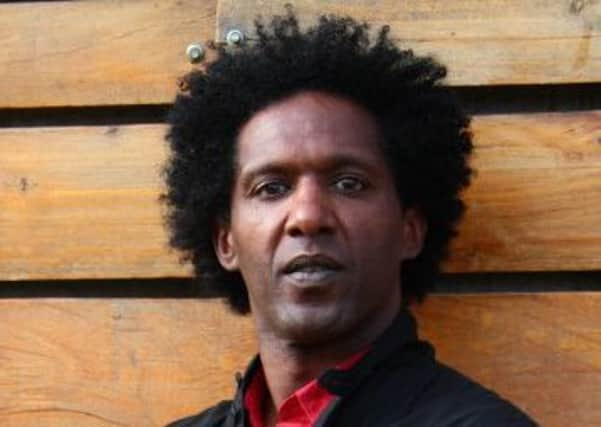Poet's words close Somme ceremonies


Lemn Sissay, who lived in Atherton as a child and spent his teenage years in the Wigan care system, read out his new work The Listening Post at a major remembrance event in Manchester’s Heaton Park.
Lemn’s poem remembers the appallingly dangerous job of tunnelling underneath no man’s land in order to relay details of enemy troop movements back to the trenches.
Advertisement
Hide AdAdvertisement
Hide AdHis performance closed the event which also included wartime music performed by the Halle Orchestra at the end of a whole day of commemorations to mark the first day of action at the Somme exactly 100 years ago.
Lemn said: “I feel very proud and blessed because a lot of people from Lancashire died in World War One. I did it for them.
“A lot has been written about it by the great war poets so I wanted to find something that hadn’t been written about before.
“It has resonance today because soldiers are still going to war and dying. In the poem I imagine the soldier at the listening post hearing 100 years ahead.
Advertisement
Hide AdAdvertisement
Hide Ad“We are also listening posts ourselves and can hear back in time. I remember a friend’s grandad who served in World War Two sitting at a kitchen table in Ashton and telling me: ‘The heroes never came back’. That has always stuck with me.”
Lemn says he wrote The Listening Post’s 12 verses in a traditional rhyming structure which is a tribute to the famous writers who served on the front line such as Wilfred Owen and Siegfried Sassoon.
The poem says: We cannot be defined by war/Not by fields sown with sorrow/Not by the death that befell you/But by the peace that followed.
Lemn says he believes the coming together and commemorate the lives lost 100 years ago is particularly timely following the divisive EU referendum campaign.
Advertisement
Hide AdAdvertisement
Hide AdThe first day of the campaign at the Somme, July 1 1916, is officially the blackest day in British military history with almost 20,000 men losing their lives.
Ceremonies were also held across the borough, with veterans from the Royal British Legion (RBL) gathering at the war memorials in Wigan and Ashton to blow a whistle and hold a two minute silence at 7.28am, the time the soldiers went over the top into no man’s land.
Charities and schools also got involved, with Wigan and Leigh Hospice putting on a memorial event at its Shevington shop and pupils at Lowton CE High School working with actors and writers to produce artistic responses to the anniversary.
More than a million soldiers on both sides were killed during the 141 days of combat at the Somme.